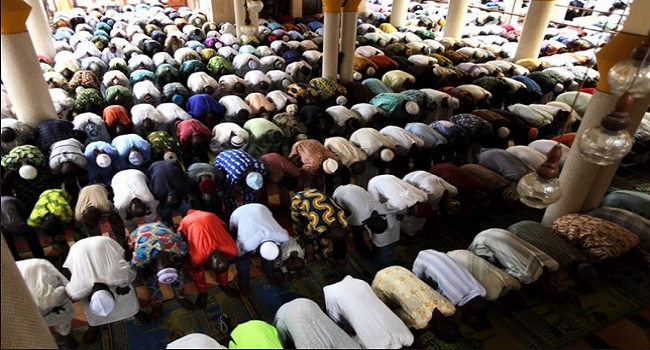News
10 Common Mistakes Muslims Make During Ramadan

During Ramadan, Muslims strive to deepen their spirituality, strengthen their relationship with Allah, and seek forgiveness for their sins.
However, certain common mistakes can detract from the spiritual benefits of this holy month. Let’s discuss ten such mistakes:
Neglecting Fasting: One of the primary purposes of Ramadan is fasting from dawn until sunset. However, some Muslims may neglect fasting by skipping meals during Suhoor (pre-dawn meal) or indulging excessively during Iftar (meal to break the fast). It’s important to observe fasting diligently as prescribed in Islam.
Overeating: After a day of fasting, it’s tempting to overeat during Iftar to compensate for the hours of hunger. However, overeating can lead to discomfort, lethargy, and may distract from the spiritual focus of Ramadan. It’s essential to eat in moderation and maintain a balanced diet.
Lack of Spiritual Reflection: Ramadan is a time for spiritual reflection, self-discipline, and self-improvement.
However, some Muslims may focus solely on the physical aspects of fasting without reflecting on the deeper spiritual dimensions. It’s important to engage in acts of worship, such as prayer, Quranic recitation, and dhikr (remembrance of Allah), to enhance spiritual growth.
Excessive Spending: In many cultures, there is a tradition of extravagant spending on food, clothing, and gifts during Ramadan. However, excessive spending contradicts the values of moderation and simplicity emphasized in Islam. Muslims should practice restraint and prioritize acts of charity and kindness over material indulgence.
Neglecting Night Prayers: The Taraweeh prayers, performed during the nights of Ramadan, offer an opportunity for increased spiritual reward and closeness to Allah. However, some Muslims may neglect these prayers due to laziness or other commitments. It’s important to prioritize Taraweeh prayers and make an effort to attend them regularly.
Engaging in Idle Talk and Gossip: Ramadan encourages Muslims to practice self-discipline and control over their speech. However, some may engage in idle talk, gossip, or backbiting, which are considered sinful behaviors in Islam. It’s important to guard one’s tongue and refrain from negative speech during Ramadan.
Neglecting Acts of Charity: Ramadan is a time of increased generosity and giving, with the emphasis on charity (Zakat) and voluntary donations (Sadaqah). However, some Muslims may neglect acts of charity or delay fulfilling their obligations. It’s essential to prioritize giving to those in need and supporting charitable causes during Ramadan.
Focusing Solely on Rituals: While performing rituals such as fasting, praying, and reciting Quran are integral parts of Ramadan, focusing solely on outward acts of worship without internal sincerity and devotion can lead to spiritual stagnation. Muslims should strive to cultivate a deeper connection with Allah through heartfelt devotion and sincerity in their actions.
Ignoring Family and Community: Ramadan is a time for strengthening bonds with family and community, yet some Muslims may prioritize personal worship over spending quality time with loved ones or participating in communal activities.
It’s important to strike a balance between individual acts of worship and communal engagement during Ramadan.
Neglecting Self-Reflection and Repentance: Ramadan provides an opportunity for self-reflection, repentance, and seeking forgiveness for past sins. However, some Muslims may neglect this aspect of Ramadan, failing to introspect and rectify their behavior. It’s crucial to engage in sincere repentance and strive for spiritual purification during this blessed month.
Overall, avoiding these common mistakes and striving for sincerity, moderation, and spiritual growth can help Muslims make the most of Ramadan and attain the blessings and rewards promised by Allah during this sacred time.
-

 News3 days ago
News3 days agoOsun Communal crisis: Slain NSCDC operative Buried Amid Tears [Photos]
-

 News4 days ago
News4 days agoKings Worshipping Idols Are Herbalists-Oluwo
-

 News4 days ago
News4 days agoFIDA Calls For Prosecution Of Medical Doctor Accused Of Raping Teenage Admission-seeker In Osun
-

 News3 days ago
News3 days agoNSCDC Officer Killed, Palace Burnt, Others Injured As Communal Clash Erupts In Osun Communities















